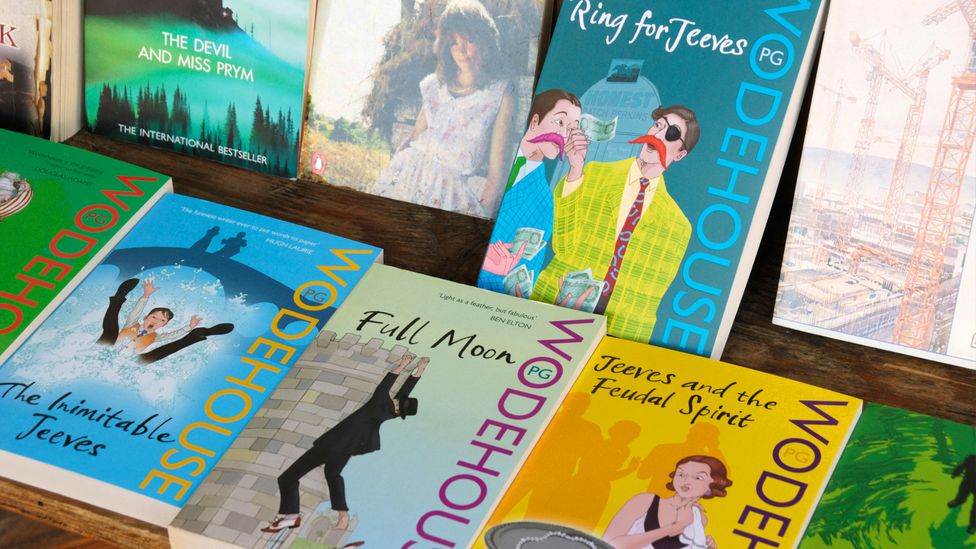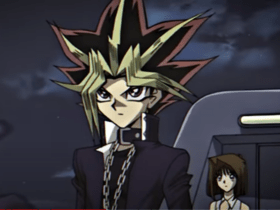After studying this yr’s Booker Prize shortlist, I wanted a lie-down and possibly a drink. The prize has such fame for rewarding books thought of as “miserable” that even the judges’ chair in 2015 referred to as that yr’s shortlist “fairly grim.” However, 2020 should maintain some unwelcome file, with every single shortlisted title constructed on gloomy foundations: decide three from alcoholism, little one neglect, environmental collapse, battle, racism, and structural failure, and also you’ve obtained your self a winner. (Take pleasure in!)
Maybe the judges are proper, and readers need joylessness, not jokes, from their literary prize winners. If that’s the case, they’re not alone. Comedy in fiction, particularly within literary imagination that will get reviewed and wins prizes, is much less celebrated than it needs to be. In his new novel Inside story, Martin Amis blames this on “the mental glamour of gloom… the sullen concept pessimism is a mark of excessive seriousness.”
Nicely, a comic book writer whose trophy cupboard isn’t full would say that, however, he’s proper. Even virtually the most celebrated comedian novelist of the last century, PG Wodehouse, referred to himself – and was praised by others – in phrases that made his work sound slight and insubstantial. He referred to as a group of his letters Performing Flea, and Punch journal mentioned: “to criticize Wodehouse is like taking a spade to a soufflé.”
However, the issue is much more deeply entrenched than that: it’s not merely that comedian fiction is never taken critically; however, when severe writers are humorous, it’s ignored. The final yr noticed the centenary of Iris Murdoch’s delivery and a resurgence of curiosity in her work. I averted studying her novels for years, assuming them by fame to be fussy, worthy, and po-faced. However, after I did, I used to be greatly surprised: in books resembling The Black Prince and The Sea, The Sea, Murdoch is a humorous author: and I don’t imply witty exchanges at dinner events – there’s a little bit of that – however slapstick, farce and the comedy of insanity and mayhem unleashed. From kidnapping movie-star canines to video games of sexual musical chairs, no behavior is too daft for her characters.
Humour isn’t just an instance of intelligence; however, a type of intelligence.
But within the profiles written about Murdoch’s final yr, there was little point out of her comedian brilliance. This isn’t a brand new phenomenon: in his 2001 biography of Murdoch, Peter J Conradi famous that contemporaneous critics generally ignored how creative her work was. “To overlook the comedy in [her best novels],” he wrote, “is not to miss an element, however their coronary heart.”
Why ought to this be? It has to be on account of Murdoch’s fearsome intelligence, her standing as a philosopher-novelist, and even her each day life as a genuine bohemian, the place she and her husband John Bayley lived like tramps in a chaotic home in Oxford (“We’ve by no means been a lot for housekeeping”). Nobody so high-minded, so indifferent from the regular, so severe, might presumably be humorous, not to mention frivolous.
Novelist Sophie Hannah, who did recognize Murdoch’s comedian brilliance and wrote the introduction to the centenary version of The Black Prince, says the comedian and the intense are inextricably linked in her novels: “She understands that the often-comic absurdity of life is inextricable from its utmost seriousness. The humor enhances reasonably than detracts from the seriousness, and vice versa.”
If that sounds acquainted, then it ought to: literature is awash with books which are each very severe and really humorous. “Writers are humorous as a result of life is humorous,” as Amis places it. That’s true not merely of satirists like Charles Dickens, however even these historically seen as retailers of gloom like Samuel Beckett and Franz Kafka, whose absurdist imaginative and prescient of the world – broadly put – is that when you don’t giggle, you’ll cry. Take Ready for Godot: what might be funnier, extra ridiculous, than ready round endlessly for somebody you realize won’t ever flip up – twice?
The very best comedy wants tragedy, as necessary ballast to cease it from floating away: the Booker Prize does now and then recognize comedian fiction, and Howard Jacobson’s Booker 2010 novel The Finkler Query, about aging and loss of life, isn’t just related to tragedy however steeped in it. When a Jewish girl is confronted with a feeble try at antisemitic intimidation, she “wasn’t going from concern to amusement and again, she was experiencing each feeling concurrently. It wasn’t even a matter of recording the opposites because they weren’t opposites for her. Everyone partook of the opposite.”
What might be extra full – what might be higher worth? – then tragedy and comedy entwined? Kurt Vonnegut’s most significant work exemplified this hybrid strategy, in books resembling his Holocaust novel Slaughterhouse-5, his tragicomedy Slapstick – concerning the modern epidemic of loneliness – and his manic end-of-the-world fable, Cat’s Cradle. Marie Phillips, writer of several comedian novels together with Gods Behaving Badly, agrees in a Beckettian manner: “The world is absurd to even – or particularly – at its worst.”
Phillips says that “individuals make the error of pondering that the humorous alternative is severe and thus when you’re humorous you possibly can’t be severe and vice versa.” The alternative of humorous isn’t severe; the choice of amusing is unfunny. Funny and extreme are symbiotic as a result of humor isn’t just an instance of intelligence; however, a type of intelligence. It requires lateral pondering, making surprising connections; being one step forward of the reader. To a different Booker winner, George Saunders, “Comedian, for me, means there’s all the time a shortfall between what we consider ourselves and what we’re.” It goes, that’s to say, to the center of character in fiction.
Good comedy in a novel doesn’t include jokes layered on a high but is woven into the material to place it in one other manner. TV producer and presenter turned novelist Richard Osman tells BBC Tradition: “The e-book has obtained to be humorous, not the writer. Precise jokes break the fourth wall.”
When writing on his bestselling debut novel The Thursday Homicide Membership, “I used to be desperately attempting not to write a humorous e-book. The characters began being humorous. However, I attempted not to take part.” However, he was “reassured by Muriel Spark and Michael Frayn that you could write an e-book that made individuals chortle; however, stored this grounded in actuality.”
Muriel Spark, in truth, is an ideal instance of humor offering function and drive: her dry merciless wit and playfulness along with her characters prevent books like Memento Mori (the place a gaggle of aged individuals is terrorized by unknown telephone calls reminding them that they’ll die) or The Driver’s Seat (the site a girl arranges her homicide) from turning into unreadably grim.
For Osman, her neatest trick was that Spark, like Iris Murdoch, “is humorous without ever as soon as breaking the spell of the e-book.”
That is associated with what Bernardine Evaristo, talking final yr about her Booker-winning novel Woman, Lady, Different, thought of the Malicious program high quality of comedy. “While you’re writing a severe e-book with humor, when you open the reader as much as humor, you’re additionally opening them as much as all the things else that are within the e-book” – which in her case is significant perception into the function of black girls in trendy Britain. Comedy is a spoonful of sugar.
For some writers, being humorous is merely being true to their very own nature. George Saunders also said he “spent about seven years attempting to maintain humor out of my work [but then] realized that I’d been conserving all the nice elements of myself out of the struggle – all of the humor and irreverence and my in-depth physique of popular culture information and fart jokes, and all the remainder of it.”
Humor that misses its mark is toe-curling, cringe-making, a form of the embarrassment of anti-humor.
However, as Richard Osman suggests, comedy can’t be artificially transplanted right into an e-book – or a writer – to make it humorous. William Golding, Nobel laureate and writer of sensible and severe books concerning the darkness of human nature, got here a cropper on this entrance. He determined that the success of his Booker-winning novel Rites of Passage had been right down to the humor inside it and decided to go all-out comedy along with his subsequent book The Paper Males. If I say that inside half a dozen pages, the hero’s pajama bottoms fall as he prepares to shoot a person rifling by way of his dustbin – then pulls the opposite man’s pajamas right down to face his “furry nest of privates” – you possibly can see that the experiment in humor was not profitable, nor in character.
Golding’s expertise could also be an excellent instance of why some writers drawback from comedy: it’s exhausting to do correctly. Mess up a drama or pathos scene in a novel, and the result merely’s dull or ineffective. However, humor that misses its mark is toe-curling, cringe-making, a form of anti-humor embarrassment. It stands out. US novelist Rivka Galchen observes that spirit is “precarious,” a form of magical spell which may be damaged, permitting the reader “to show away at any time if the idiot ceases to appeal.” The dangers are too lovely. In this sense, comedian writing is like erotic writing, which almost all tentative of literary high-wire performances. (It might be no coincidence that within the UK, we now have the Literary Assessment’s Dangerous Intercourse Award for writing in novels that’s alleged to arouse; however, as a substitute makes us laugh.)
Comedy, as we’ve seen, is the very original stuff of literature. Nevertheless, it’s a measure of how ill-regarded it has been that it was solely 20 years in the past that the UK obtained its award for comedian novels: the Bollinger Everyman Wodehouse Prize, and merely final yr it was joined by the Comedy Ladies in Print Prize. But even now, there persists curious insecurity within the severe enterprise of constructing us chortle. The Bollinger Everyman Wodehouse Prize in 2018 was withheld due to not one of the books deemed humorous sufficient. And no, this isn’t a joke.















Leave a Reply